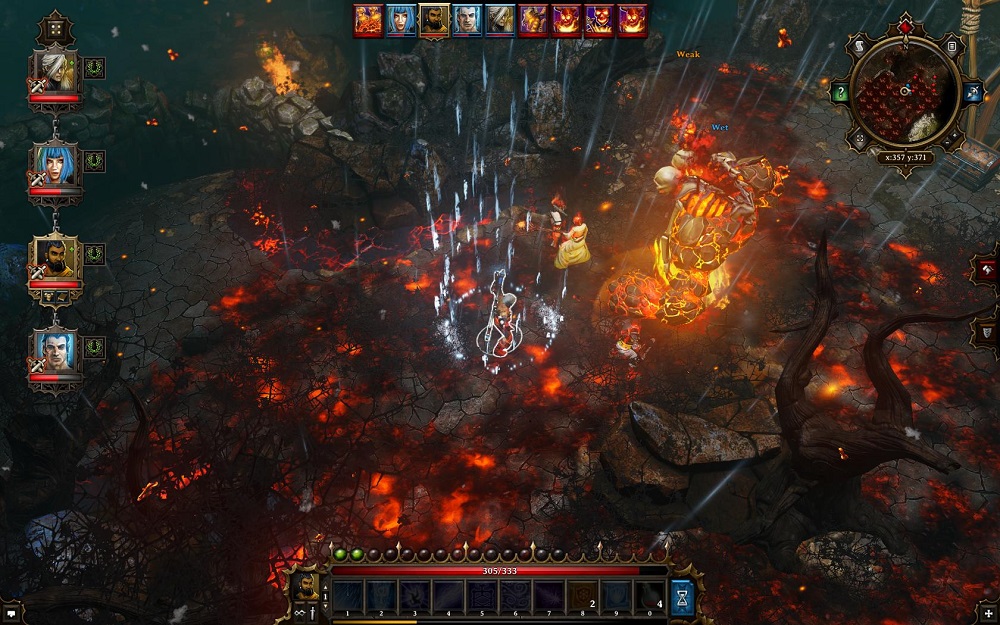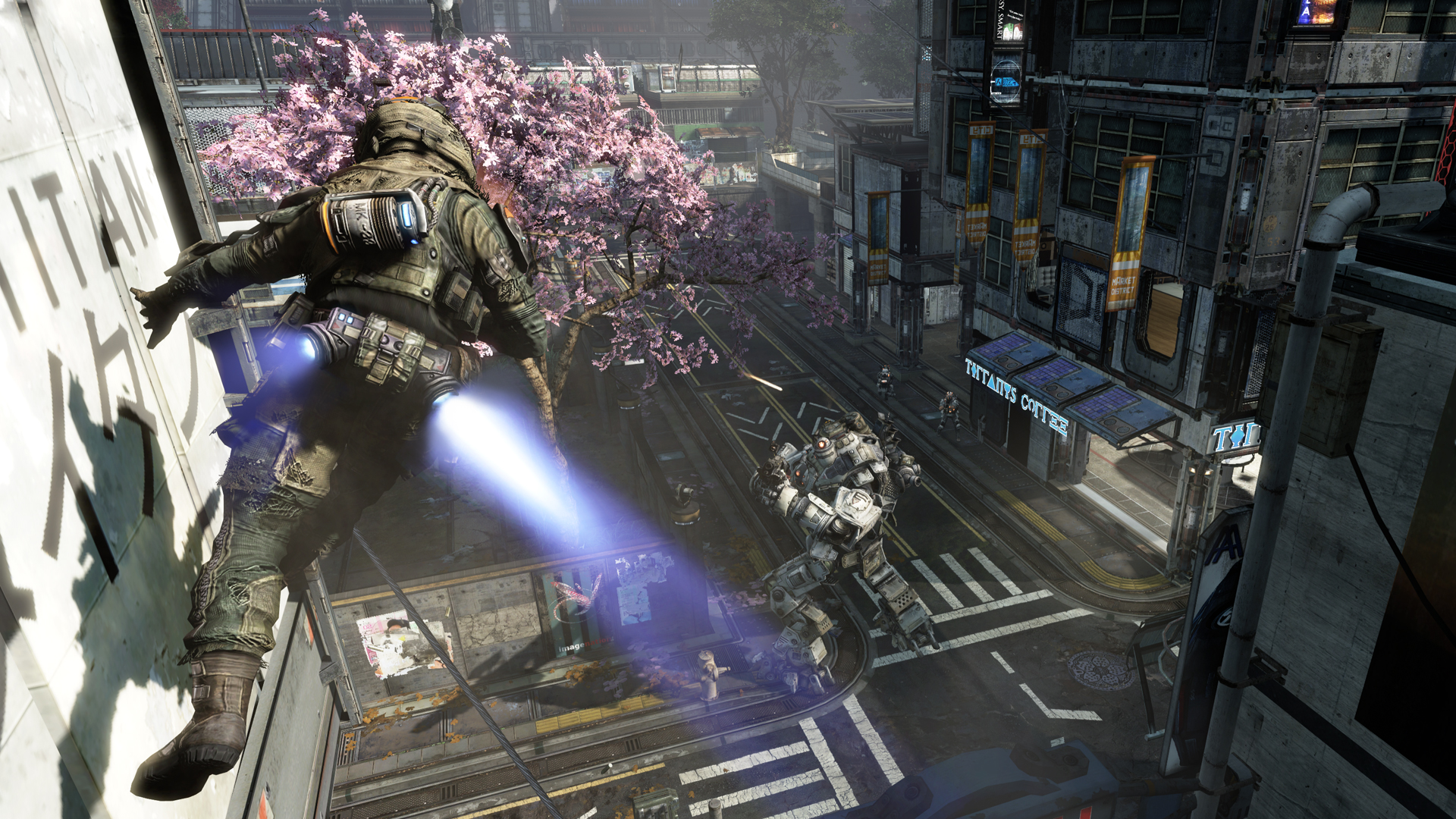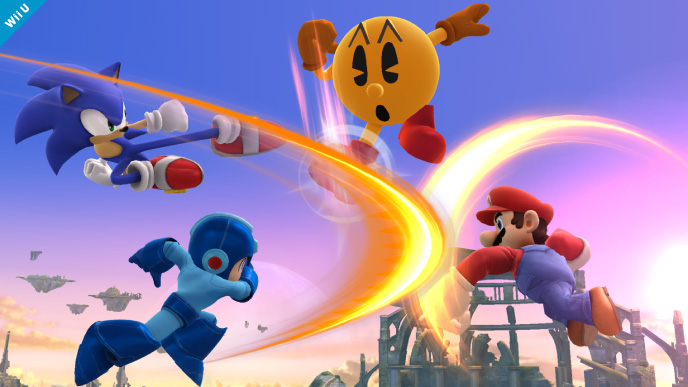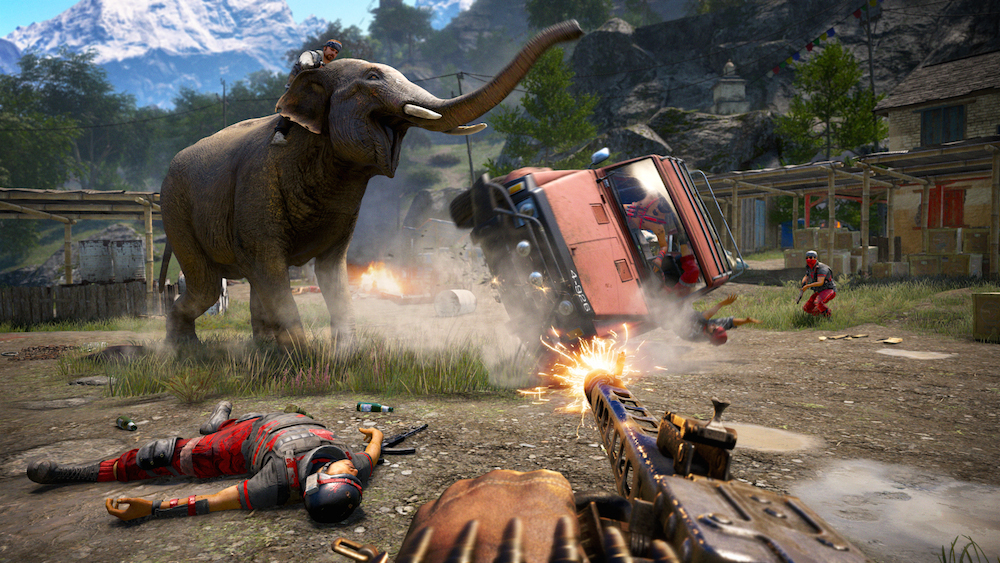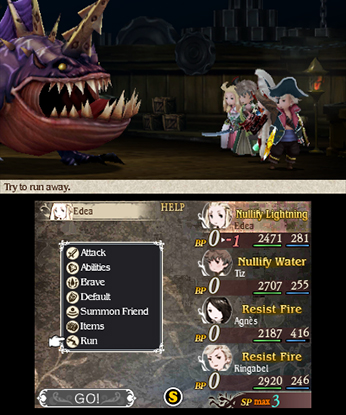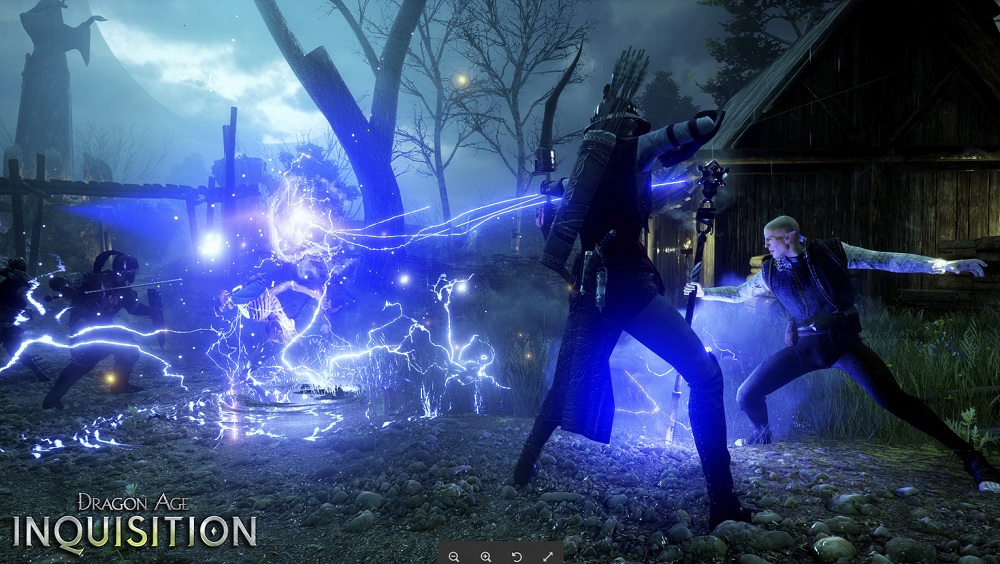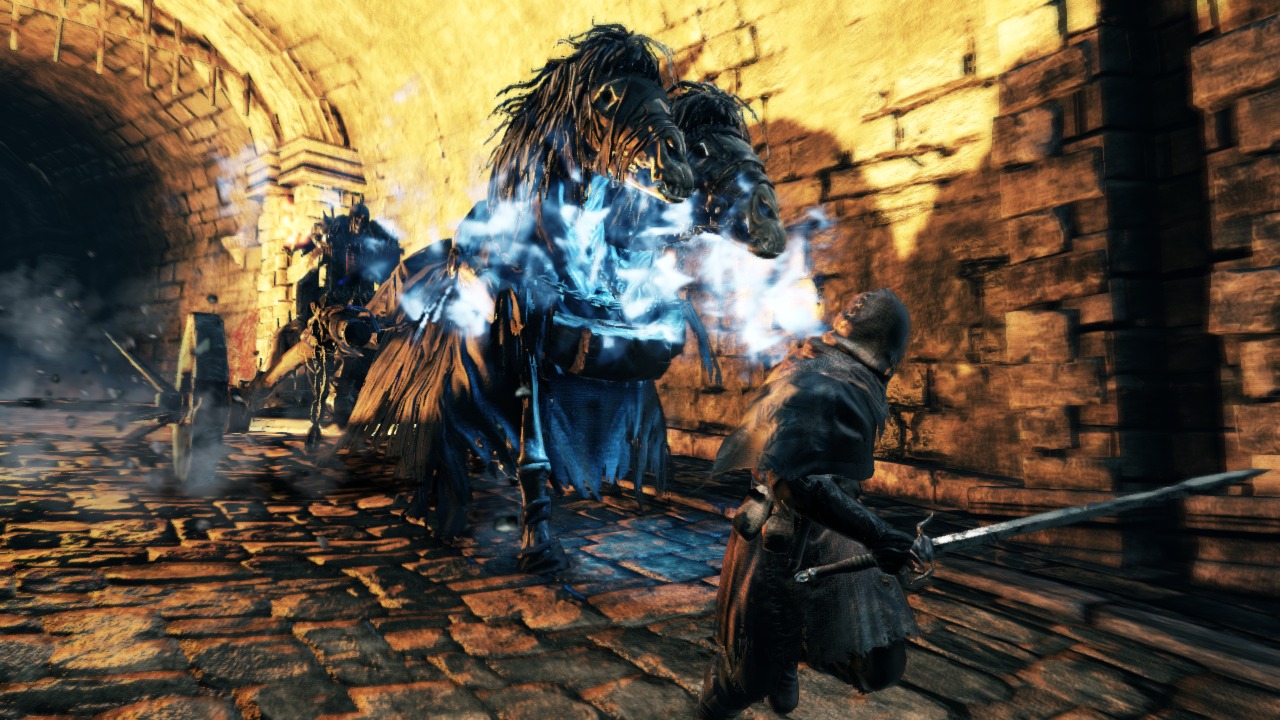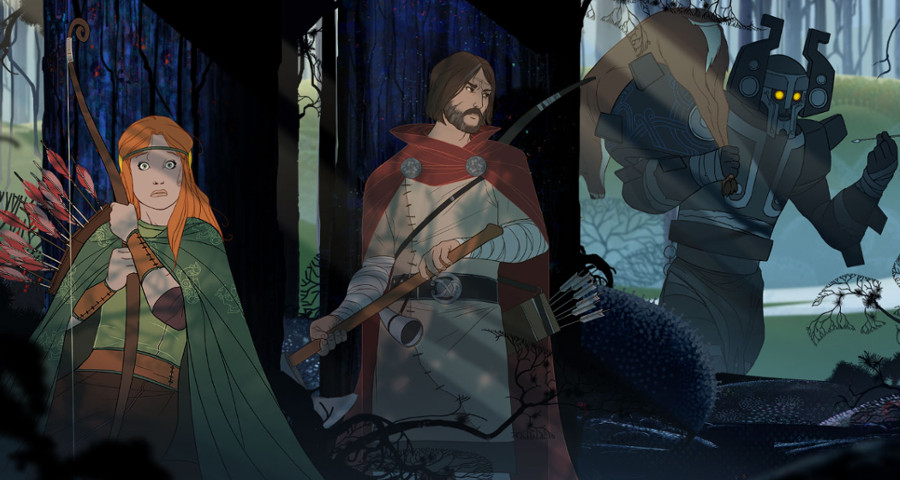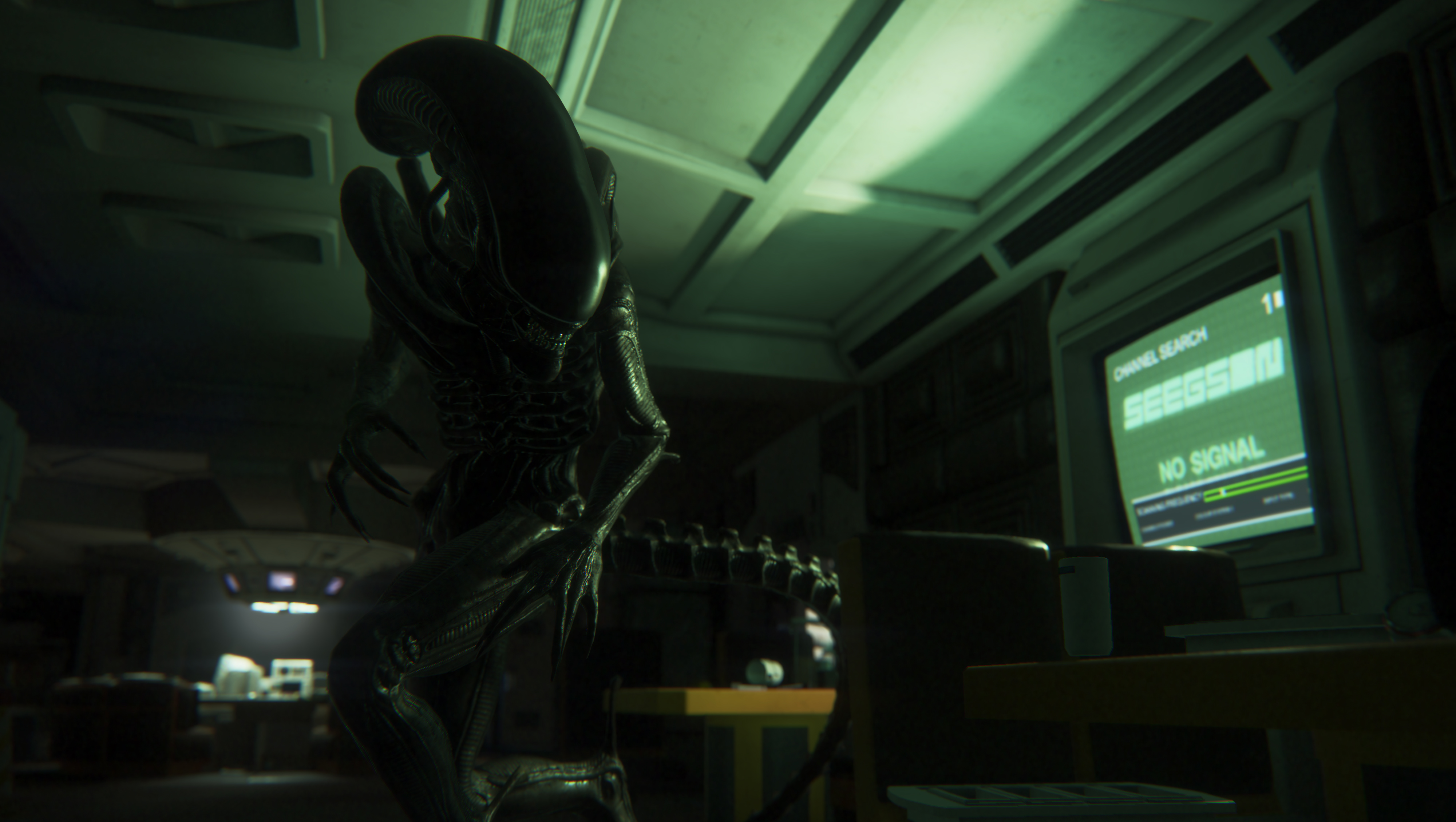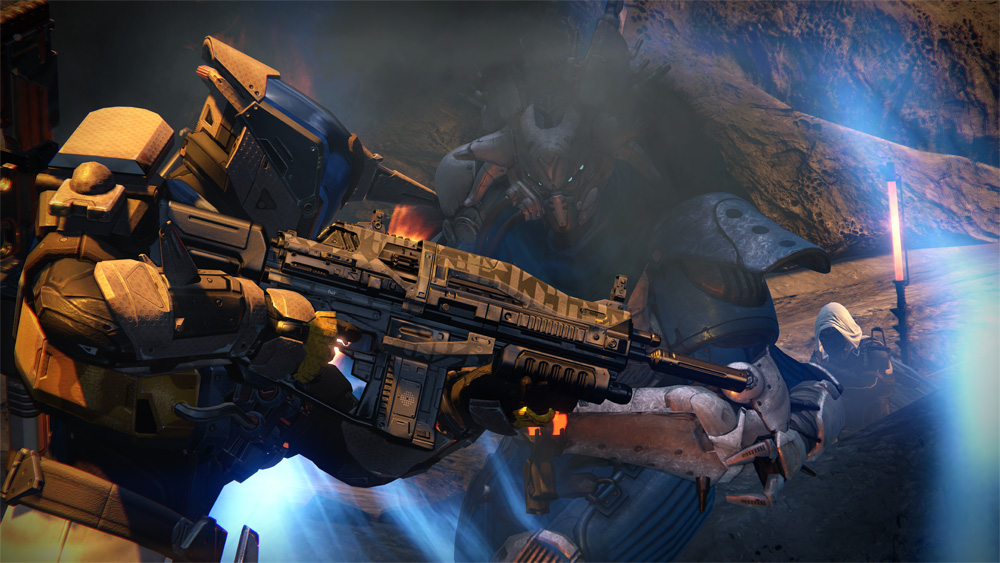How good of a year has it been for video games? Our collection of 14 staff and freelancer contributors made cases for 12 different entries in our 2014 Game of the Year voting. Only two games received a second vote for Game of the Year.
As we did last year, we’ve gathered all of these picks and included our thoughts here. You’ll see some of the big blockbusters, some indie hits, games that work on mobile, and even a Kickstarter project — a first for GamesBeat’s year-end voting.
Each staffer or contributor wrote about their favorite game of the year. As for GamesBeat’s 2014 award-winner, you can read about it here.
And please, share with us what your Game of the Year is — or tell us why we’re wrong.
Lead news writer Dean Takahashi
Game of the Year: Watch Dogs (PlayStation 4, Xbox One, PC)
Few games received as much hype as Watch Dogs. But Ubisoft’s cyberthriller about a rogue hacker who takes control of a modern city lived up to it. It’s original, has a good story, and the characters are interesting. The voyeuristic power to peer into the lives of passersby by breaking into their smartphones fascinated me. And I loved laying traps for those who were chasing me in cars. Watch Dogs held my attention for dozens of hours, and that’s more than I can say for a lot of the blockbusters this year.
My big complaint is that it’s too long. But that’s not always a bad thing if you’re enjoying the journey. I savored my power trip as an omnipotent hacker.
Runner-up #1: Titanfall
Runner-up #2: Middle-earth: Shadow of Mordor
Managing editor Jason Wilson
Game of the Year: Divinity: Original Sin (PC, Mac)
Divinity: Original Sin didn’t cross $1 million in Kickstarter crowdfunding, unlike other old-school role-playing game projects such as Pillars of Eternity, Torment: Tides of Numenera, or Wasteland 2. And it’s not only the first of these to release to its supporters and fans, but it also may be the best of the three — and the greatest twist on top-down RPGs I’ve seen in years.
Longtime Divinity developer Larian Studios found a way to innovate, too, creating a combat system in which players can use the elements against their foes (or accidentally hurt themselves). A cold spell may leave a foe in its icy grip, turned into an immobile punching bag. A pool of oil turns into a handy fireball with even the most meager of flames. By using the tools around them, your party could make even the most difficult battle scenarios manageable.
And one of the best aspects is its multiplayer. Following in the grand tradition of Baldur’s Gate and the classic games of the Infinity Engine, you could play with friends over a network — but Larian made this even better with online co-op, enabling you party up with others, be they down the street — or across the globe.
Throw in a gripping story, customizable characters, and multitudes of weapons and spells and you have the best role-playing experience of the year.
Runner-up No. 1: Hearthstone: Heroes of Warcraft
Runner-up No. 2: The Banner Saga
Reporter Jeff Grubb
Game of the Year: Titanfall (Xbox One, Xbox 360, PC)
It feels like a lot of games came out only to instantly disappear in 2014 (at least in terms of the Game of the Year discussion). No one (except Dean) is talking about Watch Dogs anymore. Destiny has its fans, but it has just as many detractors. And Dark Souls II seems like it left a lot of fans wondering where the real followup to Dark Souls is.
But I think Titanfall was the game with the most hype that ended up fizzling out the most with fans. And that’s a shame, because it really is wonderful.
The sci-fi shooter from developer Respawn, a studio composed of the people who created Call of Duty, hit early in the year. I’m still playing it — I’ve spent 4 days, 10 hours, and 48 minutes riding around in mechs, running on walls, and shooting enemies in midair in a smart revision of multiplayer deathmatch since its March 11 release.
Even the lack of a true single-player campaign doesn’t bug me because the online game is so well crafted. And the best part is that Respawn worked to make the game better over the last nine months. Whether it’s tweaks to the user interface or big changes like adding a co-op mode, Titanfall improved sharply from March to December.
It’s clear now that Respawn didn’t dethrone Call of Duty in terms of sales or market share, but it’s done enough to satisfy my need for something new in a space that had grown stale.
Runner-up #1: Mario Kart 8 (Wii U)
Runner-up #2: Retry (iOS/Android)
Community manager Mike Minotti
Game of the Year: Super Smash Bros. for Wii U (Wii U … duh)
Super Smash Bros. is dear to me. For a group of my friends, it helps hold us together. Nintendo always does a good job with the fighting series, but the makers of Super Smash Bros. Brawl for the Wii made some questionable decisions. Characters felt too floaty, the roster was unbalanced, and fighters would even randomly trip during fights, adding a frustrating element of randomness.
The Wii U version is an improvement in every way. The roster is bigger and better balanced, and tripping is mercifully gone. The fighter also looks fantastic despite the system’s hardware shortcomings.
I’m also happy to see Nintendo make some concessions for fans who prefer to play Smash Bros. as a competitive game. You can select versions of each level that do away with gimmicks and random elements, which turns each fight into a pure battle of skill. It even features online modes that let you fight with items off.
But most important, Smash Bros. is just fun. I’ve already played several marathon sessions with my friends that have lasted longer than a few hours. I’m sure we’ll have plenty more for years to come.
Runner-up #1: Bravely Default
Runner-up #2: Shovel Knight
Writer Heather Newman
Game of the Year: Hearthstone: Heroes of Warcraft (PC, Mac, iOS, Android)
Hearthstone enticed, enthralled, and eventually enmeshed more than 20 million of us this year.
Who would have thought that a turn-based fantasy trading card game, from a strategy and massively multiplayer online RPG developer, would have taken the gaming world and shaken it loose of its cynicism? And yet I keep hearing stories from friends who have upgraded their tablets specifically to play this deceptively, devilishly simple card battler.
Beyond the plot, attack, and neutralize nature of the gameplay, I also appreciate the pop culture and Blizzard Entertainment game references on every card. The latest Goblins vs. Gnomes expansion pack — and who are we kidding, those two are the master races — has inside jokes galore. Mech minions, V-07-TR-ON, and Boom Bots (“WARNING: Bots may explode.”)? Yes, please.
Hearthstone has a permanent spot on my iPad. I may never have the chance to play six Molten Giants or seven Kel’Thuzads in a single turn — who am I kidding, I’m happy to have my low-rent Mage deck — but I still get a little dose of joy every time I line up a killing blow.
Runner-up #1: Dragon Age: Inquisition
Runner-up #2: Middle-Earth: Shadow of Mordor
Writer Daniel Crawley
Game of the Year: Far Cry 4 (PlayStation 4, Xbox One, PC)
Far Cry 4 hosts some interesting characters, especially the crazed, oppressive dictator, Pagan Min. But the real star of the first-person action adventure sequel is the living, breathing world that Ubisoft created and named Kyrat. The fortysomething hours I spent exploring the mysterious, mountainous Himalayan region were simply my most entertaining gaming hours in 2014.
I climbed insanely high peaks, soared over poppy fields, discovered lost treasure in long-forgotten hillside caves, and witnessed the wildlife of Kyrat in its primal glory. With bears fighting it out in isolated valleys, eagles terrorizing the local population, and elephants idling on riverbanks, the animals of Far Cry 4 are incredible. Well, except for the damn honey badgers. The less said about them, the better.
Small, game-changing decisions by Ubisoft, like the addition of a nimble but flimsy helicopter and the option to ride into battle on elephant-back, grenade launcher in hand, elevated Far Cry 4 way beyond its predecessor.
Sure, the vehicles are a little clunky to control, and the dialogue can get a bit repetitive. But in terms of sheer pleasure, Far Cry 4 totally delivers. Its lengthy single player campaign, diverse range of side-quests, cooperative gameplay, and selection of multiplayer modes — diverting enough, but unlikely to rival the big MP draws — also made it one of the best bang-per-buck titles of the year.
Heck, I even stuck around long enough to get the Platinum trophy, and I thought I gave up collecting those a long time ago. I can’t think of higher praise than that.
Runner-up #1: Bayonetta 2
Runner-up #2: Super Smash Bros. for Wii U
Writer Giancarlo Valdes
Game of the Year: Bravely Default (3DS)
Bravely Default is like a delicious meal that I never want to finish. It starts off in a really bland way: Four heroes must awaken four crystals to restore the world to its former glory. I thought I knew where it was heading — years of playing Final Fantasy and other Japanese role-playing games have made me aware of every “save the world” cliché there is — but it subverts the genre in small, ingenious ways. I’m still blown away by how it gives you the option to fast-forward through the turn-based combat (I have the medium setting turned on all the time). That’s basically developers Square Enix and Silicon Studio saying “We know how tedious grinding for levels can be, so here’s something cool to get through it.” I’ve used it so much that normal speed just feels like everything is moving in slow-motion.
The characters are refreshingly different as well. The numerous conversations they have add so much flavor to their personalities, and I feel like I’m watching them grow and mature throughout this journey. The voice actors behind them are also fantastic: They deftly move between comedy and tragedy (how could you not love Ringabel?).
I’ve been savoring the experience, with about 60 hours spread across the last six months, but it looks like I’m only halfway through the game. That’s the thing about Bravely Default — it never stops surprising me. I don’t think I can ask for anything more out of an RPG.
Runner-up #1: The Walking Dead: Season Two
Runner-up #2: Call of Duty: Advanced Warfare

Writer Evan Killham
Game of the Year: LittleBigPlanet 3 (PlayStation 3)
My 2013 Game of the Year was Tearaway, the other project from LittleBigPlanet creator Media Molecule. And I know I’m repeating myself, but 2014 is no different: It was nice to take a break from all of the bleakness of the major releases and play something that celebrates fun and inspiration.
Developer Sumo Digital took over for Media Molecule this time, and its contributions include a handful of new, playable characters, full voice acting, and huge expansions on what was already one of the most comprehensive level-creation systems around.
And even if you don’t feel like making anything, the community area contains millions of player-created stages for you to check out, and with the new tools, some can even be big enough to qualify as full games.
But beyond all of that other, mechanical stuff, LittleBigPlanet 3 is a game with a single, noble purpose: to make everyone who plays it smile. It’s a soft, woolen island of happiness in an ocean of bullet-riddled cynic-fests, and like last year, I appreciated the change in tone.
Runner-up #1: Road Not Taken
Runner-up #2: The Wolf Among Us
Writer and editor Eduardo Moutinho
Game of the Year: Dragon Age: Inquisition (PS4, Xbox One, PS3, Xbox 360, PC)
BioWare is one of the only developers that has given me the chance to experience time travel. Whenever I pop Dragon Age: Inquisition into my PlayStation 4, I suddenly get transported many hours into the future. That’s how immersive this game is. Everything about Inquisition is epic — from its expansive levels to its captivating cast. It has a sticky, addictive quality that is just too good.
While offerings like The Elder Scrolls V: Skyrim give players unprecedented freedom to explore, Inquisition is more intimate. It makes you care about its characters and the chaotic world they inhabit. As the Inquisitor, you’ll make decisions that will impact your journey. And you’ll act as confidant to a diverse group of memorable allies who will become more important to you as the battles rage.
You get quality and quantity with Inquisition. It gives you a ton of stuff to do. If you want to ride around the countryside on your armored steed in search of herbs to make potions with, you can do that. If you feel like slaying some dragons, you can do that. And if you want to obsess over the decor of your mountaintop stronghold, you can do that, too.
I don’t just play Dragon Age: Inquisition. I savor it. This is a special game, and it’s getting my vote for the best game of 2014.
Runner-up #1: South Park: The Stick of Truth (Xbox 360, PS3, PC)
Runner-up #2: Titanfall (Xbox One, PC)
Writer Gavin Greene
Game of the Year: Dark Souls II (PlayStation 3, Xbox 360, PC)
It wasn’t until after I had finished Dark Souls II that my more “hardcore” Souls-playing friends told me that I had so many reasons to hate the action-RPG. They spent hours of our mutual time going over just how diminished the final game was from what we (usually meaning they) had waited for. From Software dropped the dynamic lighting from the demos and trailers, the physics had devolved, the environments became too sparse; a thousand complaints at every level of the game’s design.
Whether you chalk it up to my naiveté (this being the first Souls game I played in true earnest) or the solid foundation and gameplay core of Dark Souls II, I hardly cared. Whether it was during my initial 60 hour playthrough or the several times I returned (post-fanboy ravings) to play the later DLC, no game this year absorbed me like Souls II. I hung on every possible hint to the vague, sparsely threaded story. The morbid possibilities that flitted about the corner of my eye in each new area made it impossible to pick up and play for less than two hours.
Dark Souls II is a game of flirtatious tension. The lack of practical explanation for anything made you realize rather quickly whether you as a player had the gall to experiment with that new weapon or spell and put the tens of thousands of souls you had collected at risk. Your safety isn’t the only thing in jeopardy; your comfort is as well. From Software even managed to tweak its multiplayer component, creating something that could surround you with other players and still have you feeling desperately alone in their world.
And yeah, I played as a magic-user. And I’m not sorry.
Runner Up #1: Dragon Age: Inquisition
Runner Up #2: Middle-Earth: Shadow of Mordor
Writer Stefanie Fogel
Game of the Year: Hearthstone: Heroes of Warcraft (PC and iOS)
I’ve never had much interest in collectible card games, outside of a brief infatuation with Magic: The Gathering in my junior year of college. But that changed after I started playing Hearthstone: Heroes of Warcraft.
Blizzard’s entry in the CCG genre is accessible and addictive. It exemplifies the phrase “easy to learn, difficult to master.” Its rules are simple compared to other card games, yet it always presents a new strategy to master or deck to try, and it’s this constant experimentation coupled with the desire to improve that makes Hearthstone great.
Hearthstone has held my interest in a way no other game has this year. I’ve spent countless hours browsing online guides and watching YouTube videos and Twitch streams. I’ve worked hard to climb the rankings with my favorite decks (Shaman and Mage at the moment) and improve my win-loss rate in the Arena, the mode where you pick 30 random cards and play as long as you can before losing three matches.
Plus, did I mention it’s completely free? Not only is it free, but it’s free in a way that feels fair. None of Hearthstone’s content is gated; every card, Arena run, or adventure can be purchased with in-game gold you earn through daily quests and winning matches. Someone who never spends a single cent can still be a competitive player — eventually. Blizzard’s business model is a refreshing change from the “pay to win” mentality of other free-to-play games, and it’s one of the many reasons Hearthstone will have a permanent home on my iPad for the foreseeable future.
Runner-up #1: The Wolf Among Us
Runner-up #2: Dragon Age: Inquisition
Writer Rory Appleton
Game of the Year: The Banner Saga (PC, Mac, iOS, Android)
The key to a great indie game is originality. The best cloak themselves in unique features and force their way into the conversation. That’s why it’s fitting that in 2014 — a year with many great blockbuster RPGs like Shadows of Mordor and Dragon Age: Inquisition — the greatest of them all was The Banner Saga.
The Banner Saga is the first part of a trilogy developed by three former BioWare employees at their newly formed Stoic Studio. These men brought veteran skill and blockbuster polish to the game, which manages to stick out almost a full year after its release due to a lasting impression left on all who play it.
From the first second I loaded The Banner Saga, I knew it was something different. The vibrant, colorful world is clearly rooted in Norse mythology, but the developers made the brilliant move of creating their own cast of creatures to fill the snowy lands. Players must lead companies of men and Varl against the evil Dredge, who have risen from the netherworld to bring civilization to an end. The resulting narrative gives a realistic feeling of just how much suffering war brings to the populace while also transporting players to a unique fantasy realm.
The Banner Saga delivers the total package in sensory stimulation. The beautiful art provides an unmatched visual appeal. The musical score — composed by Austin Wintory, the only person ever nominated for a Grammy for a video game’s soundtrack — is perhaps the greatest in all of gaming history. Finally, a challenging and heart-wrenching storyline invokes every emotion your heart and head can produce. All of these features blended together wonderfully to create the best gaming experience of 2014.
Runner-up #1: South Park: The Stick of Truth
Runner-up #2: Wasteland 2
Writer Miguel Concepcion
Game of the Year: The Last of Us Remastered (PlayStation 4)
I’m hard-pressed in trying to come up with another dystopian game world that articulates the indifference of the universe more beautifully than The Last of Us. Its wholly scenic presentation of North American urban decay echoes the travel guide cliche of a place worth visiting but not worth living in. The PlayStation 3 version was detailed and visually captivating in its own right, but experiencing it in 60 frames-per-second fluidity in the Remastered version made for an unexpectedly fresh playthrough.
It’s a world I’m continually addicted to, but only in 30 minute to 45 minute daily sessions. To play any longer would wear me down spiritually. It’s not hard to find stories in games that instills a pervasive sense of hope in their outcomes. It’s more difficult to find a story like The Last of Us where that hope is sternly tempered with cautious optimism, which also complements its theme of moral ambiguity.
For fans who only had the time and the emotional fortitude to play last year’s version once, The Last of Us Remastered is a fine an opportunity as any to attempt a playthrough on Survivor mode. This setting deprives you of the superhuman ability to see through walls. This level of realism filled me with conflicting feelings of positive anticipation and dread. I began every session with a deep inhale and an exhale of the words, “Here we go again… .”
The Last of Us Remastered, in its Director’s Cut-level completeness, is emblematic of a year that saw an inordinate amount of upgraded re-releases, the likes of which we may never see ever again across another 12-month period. From Tomb Raider to Metro and many others, these reissues rewarded procrastinators for skipping the original versions, while still warranting a revisit by those who bought these the first time around.
Runner-up #1: Far Cry 4
Runner-up #2: Alien Isolation
Writer Stephen Kleckner
Game of the Year: Alien: Isolation (PlayStation 4, Xbox One, PC)
After prolonged exposure to the radiation that fumes behind the curtain of the games business, the portions of the brain that generate hype for new products hardens and dies. I’ve experienced so many years of either being fed marketing hyperbole for creatively bankrupt releases or seeing ideas that enter the development machinery as incredibly promising concepts wind up twisted into banality by the time it is popped out the other end.
This has made me guarded against fully immersing myself into anticipation for anything in games. So when I had heard about Alien: Isolation’s concept, I wanted to believe the marketing and allow myself to be fully immersed in anticipation for it. Sega and Creative Assembly were taking a courageous step away from the safe, high action games the franchise has been falling back on. They promised a game that was slower paced, with a creature that behaved exactly how it was originally intended. They promised to make the Alien terrifying again.
When Alien: Isolation released, it was technically clunky, needed some work on its pacing, and had some design ideas that I felt needed tweaking. With so much criticism, it doesn’t sound like a game of the year, does it? But for me, it’s my Game of the Year. Because what Alien: Isolation nailed was important.
It was what Creative Assembly promised me: a stealth adversary that is unpredictable, ruthless, and smart. The creature became a polygon nightmare that I could not fully escape, always making sure I knew it was lurking in the vents. That it was only one slither out of an air shaft away from terrorizing me.
Sure, with Alien: Isolation Creative Assembly created the best game in the franchise, hands down, and redeemed Sega for its recent Alien: Colonial Marines fumble. But more important, it is one of the few commercial games in the last decade where my investment in hype was paid back.
Writer Paul Semel
Game Of The Year: Destiny (PlayStation 4, Xbox One, PlayStation 3, Xbox 360)
The story is anemic, the missions are redundant, and you can’t turn off the terrible, terrible music … so why the heck did I love Destiny so much? Sure, I’m totally into sci-fi games and first-person shooters, but it was more than that. Not only is Destiny basically Halo meets Call of Duty, but it’s the best Halo game since 2007’s Halo 3 and the best Call of Duty since 2009’s Black Ops. Heck, if Destiny had Nazis, a theme song from Rush, and Pauley Perrette voicing a snarky alien, they could’ve called it Paul Semel’s Destiny.
But the biggest thing Destiny has going for it — and it’s something almost no other game has this year — is its effortless quality. It’s one of the few games in which you sit down to play for just 20 minutes, but then you realize that four hours have passed, and where the hell are my pants? Oh, screw it, one more mission won’t hurt.
Oh, and here’s the kicker (and I say all of this as someone who doesn’t play well with others): You know those massive raids that come after the main story missions, the ones that everyone raves about? I’ve never played one of them. Never wanted to. Aside from a couple strikes and some multiplayer, I only played the story missions. And once I finished the story, I put the disc in a drawer, where it will sit until I play Destiny a second time. And then a third. And probably a fourth when they conclude the saga and I play all three or four or however many games it ends up being in a row. Because that’s how much I loved Destiny.
Runners-up #1: Zen Pinball 2 for PlayStation 4, Pinball FX 2 for Xbox One
Runner-up #2: Wolfenstein: The New Order
VentureBeat's mission is to be a digital town square for technical decision-makers to gain knowledge about transformative enterprise technology and transact. Learn More


